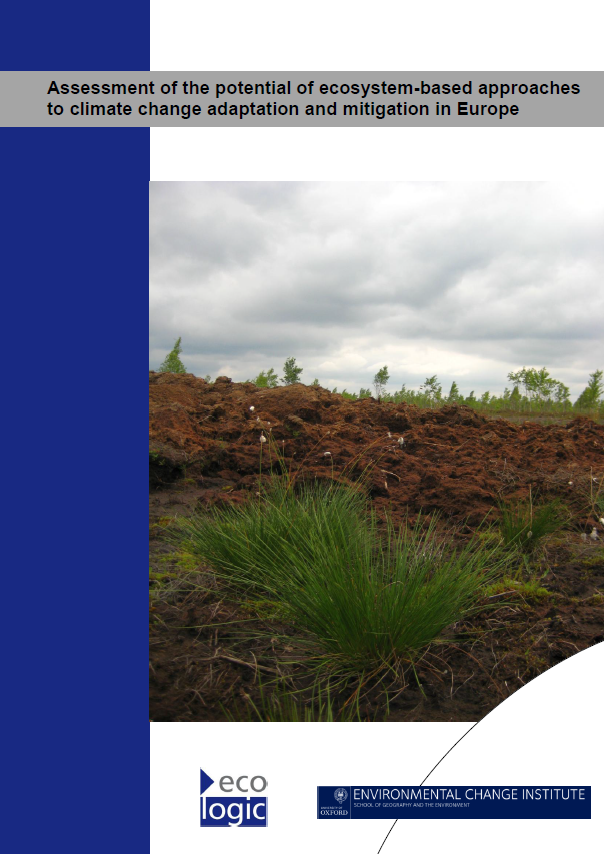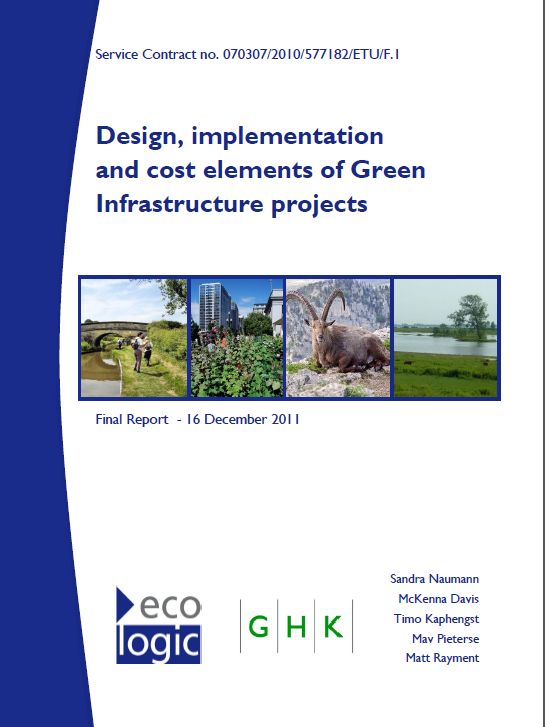© Sandra Naumann
Ecosystem-based Approaches for Climate Change Adaptation and Mitigation
- Project
- Duration
-
-
In response to growing climate change pressures, ecosystem-based approaches have emerged as a promising strategy to increase the resilience of ecosystems and support sustainable livelihoods. Ecologic Institute and the Environmental Change Institute examined the success factors leading to and obstacles hindering the implementation and integration of such approaches in climate change strategies. The report is available for download.
Background
The concept of an 'ecosystem-based approach' builds on the ecosystem approach. According to the Convention on Biological Diversity (CBD), "the ecosystem approach is a strategy for the integrated management of land, water and living resources that promotes conservation and sustainable use in an equitable way" and which aspires to maintain the natural structure and functioning of ecosystems. Ecosystem-based approaches address the crucial links between climate change, biodiversity and sustainable resource management and thus provide multiple benefits. Implementing such approaches can contribute to both the reduction of greenhouse gas emissions and the enhancement of sinks, as well as improve biodiversity conservation, livelihood opportunities and health and recreational benefits. For example, coastal ecosystems such as salt marshes and barrier beaches provide natural shoreline protection from storms and flooding; urban green spaces reduce the urban-heat island effect and improve air quality; rewetted (formerly drained) peatland areas avoid greenhouse gas (GHG) emissions; and afforestation with native species help forests to adapt to climate change.
Objectives
The results of this study will include evidence on the cost-effectiveness of ecosystem-based approaches, as well as other related factors, such as obstacles to implementation. The findings will help to enhance the integration of ecosystem-based approaches in policies and strategies relevant for climate change at different spatial levels, raise awareness of the multiple benefits provided by such approaches and support the development of the post-2010 Biodiversity Policy and Strategy on Green Infrastructure.
Methodology
Several tasks will be involved in this study, including:
- Producing a literature review of current examples of development and the use of ecosystem-based approaches to climate change mitigation and adaptation in Europe;
- Assessing the extent to which identified adaptation strategies from throughout Europe consider ecosystem-based approaches, identifying the obstacles preventing this integration and recommending ways to overcome these obstacles; and
- Conducting a cost-benefit analysis for 5 case studies with high biodiversity relevance, comparing traditional engineered approaches with ecosystem-based approaches.
The final report [pdf, 1.9 MB, English] is available on this website for download and can be also found on the European Commission’s Nature & Biodiversity website.






